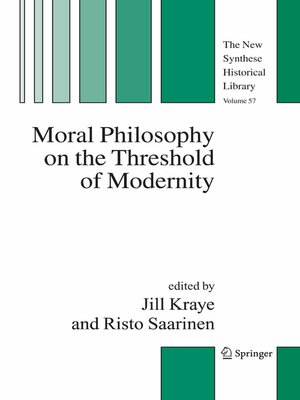Moral Philosophy on the Threshold of Modernity
ebook ∣ The New Synthese Historical Library
By Jill Kraye

Sign up to save your library
With an OverDrive account, you can save your favorite libraries for at-a-glance information about availability. Find out more about OverDrive accounts.
Find this title in Libby, the library reading app by OverDrive.



Search for a digital library with this title
Title found at these libraries:
| Loading... |
Over the past twenty years the transition from the late Middle Ages to the early modern era has received increasing attention from experts in the history of philosophy. In part, this new interest arises from claims, made in literature aimed at a less specialist readership, that this transition was responsible for the subsequent philosophical and theological problems of the Enlightenment. Philosophers like Alasdair MacIntyre and theologians like John Milbank display a certain nostalgia for the medieval synthesis of Thomas Aquinas and, consequently, evaluate the period from 1300 to 1700 in rather negative terms. Other historians of philosophy writing for the general public, such as Charles Taylor, take a more positive view of the Reformation but nevertheless conclude that modernity has been shaped by 1 conflicts which stem from early modern times. Ethics and moral thought occupy a central place in these theories. It is assumed that we have lost something – the concept of virtue, for instance, or the source of common morality. Yet those who put forward such notions do not treat the history of ethics in detail. From the historian's perspective, their far-reaching theoretical assumptions are based on a quite small body of textual evidence. In reality, there was a rich variety of approaches to moral thinking and ethical theories during the period from 1400 to 1600.






